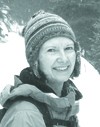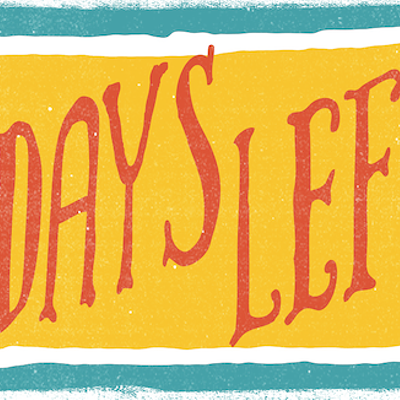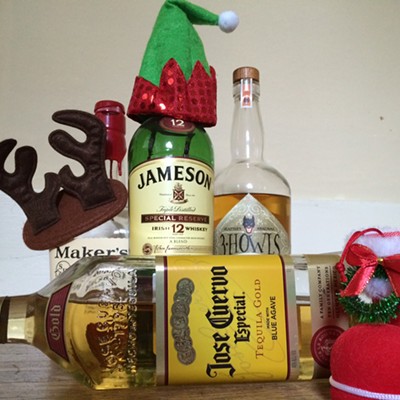EDITORS’ NOTE: As the more than 200 stories poured into our inbox for our annual Fiction Contest, my dark heart fluttered. This year’s theme — “The End” — really allowed our readers to explore and exorcise their demons. In fewer than 2,000 words, our short-story submissions covered death, violence, aging, loss and more than one zombie attack. The 10 Inlander staff judges each read through a stack of stories and selected our 25 favorites. We then read through those pieces and spitballed, argued and compromised our way to the four writers whom you’re about to read. Without further ado, we proudly present this year’s contest winners.
— Joe O’Sullivan, contest editor
In “The Bus Ride,” Rebecca Goodrich pens a mystical love letter to the Inland Northwest. With descriptive flair, Goodrich recounts the story of a passenger named Jim as he journeys from Boise to Spokane. It’s a haunting portrait etched in forests and canyons. (Joe O’Sullivan)
The Bus Ride
By Rebecca Goodrich
Jim stands alone in the bus depot, a ragged island in a swirl of color and noise. He’s made this trip so many times that the sensory details have dulled to mere impressions: a baby’s cry, the orange flash of a worker’s safety vest, the basso thrum of the diesel engines, the acrid smell of exhaust. He fingers the ticket in his pocket: Trailways, Boise to Spokane. The paper is thin and wrinkled, reminds him of a page in a bible. His left hand curls around the memory of luggage lost long ago, a leather valise perhaps. He lines up with the other passengers, then shuffles toward the waiting bus.
Jim mounts the three steps into the coach and maneuvers down the narrow aisle to his regular seat — third back on the right. He vaguely recalls a time when he rode in the rear with the drinkers and their flasks. But lately the firm knowledge of what is true has eroded, grain by grain, like sand in a river’s cut bank. He settles into the rough, upholstered seat and rests his head against the cool glass.
Jim is used to being ignored. He can’t remember the last time he shared a seat. On these rides he prefers to nap or gaze out the window. This route is so familiar to him now, every tree and ditch. Colors change, leaves fall, but under it all the bones of the landscape never shift. Today the sky is low and gray, and just as the bus eases out of the depot it begins to snow.
In the seat ahead of him sits a pretty teenager with glossy black ringlets and a jewel in her nose. She chats across the aisle with a heavy woman patting a dough-faced baby slung over her shoulder. She’s going to Grangeville to stay with her aunt while her mother goes to Vegas with her boyfriend. No, she’s never been to Spokane but she’s going to go with her friends as soon as they graduate this May.
In the seat behind Jim sits a middle-aged rancher, jowly and weathered. He wears a pearl-snap vest over red plaid stretched across an ample belly. The rancher’s oily Stetson is stowed aloft, held in the luggage bin by elastic ropes that keep the bags and purses from tumbling out in case of a crash. He eyes the teen suspiciously, wonders if the hip-hop music leaking from her headphones will disturb his reading. He pulls glasses out of his breast pocket and turns on his Kindle.
Snow swirls more earnestly now. The long wipers slap back and forth. Passengers doze in the cozy heat while beneath them the ribbon of Highway 95 unwinds north through rounded hills bristling with sage. One stop blends into the next: Cascade, Lake Fork, Riggins, McCall. The road twists and turns alongside the Salmon River where high gravel banks are all that’s left of the search for silver. The blowing snow is a flowing curtain obscuring, then revealing the river’s far shore, the abandoned mine shafts, the rusting dredges.
The driver grips the wheel hard, muscles the bus around each blind curve, through each thin-shouldered straightaway. Now the road is a narrow shelf hanging far above the winter river. Now they press through a dim tunnel of shivering tamarack and pine. Soon they emerge from the canyon and pass one abandoned homestead after another: Jim can sense the sad spirits left behind, living in the hollow-eyed houses and broken-spined barns. Dreaming, the rancher fights cutthroat trout leaping out of sun-shot waters. The pretty teen closes her eyes and listens to a singer from a city she’ll never see.
Hours slide by, and before Jim is ready the bus pulls into White Bird, Idaho, a tiny town in deep shadow, surrounded on all sides by the basalt cliffs of White Bird Canyon. The stop is necessarily brief; the driver is nervous, eager to get going before the weather deteriorates further. Smokers huddle in a circle with their backs to the wind. Others buy Cokes and candy from a machine. Jim stays in his seat. The gritty snow scours the glass inches from his face. The coach shudders with each gust. The smokers tramp back aboard, and the bus heads toward White Bird Grade.
Thin and winding, the road etches a steep spiral up the head of the canyon. The heavy coach grinds through each tight turn, stutters to shift, then labors up the next incline. Breath condenses on the windows, and the land falls away misty and indistinct. Jim glimpses figures that waver in the wind like tattered laundry: lingering ghosts of the U.S. 1st Cavalry routed here a century ago by Nez Perce braves. They watch the bus’s tortured progress with empty eyes. They recognize Jim behind the glass, his icy face, his vacant stare.
And then comes the moment that Jim has dreaded from the start, that surprises him every time. That slight hitch and lurch. The unhurried skid toward the brink. The slow unbalancing. The swift, spinning plunge across the hollow cavern of sky. He hears the shriek of rending metal. He hears the cry of breaking glass. Somewhere a baby wails. Light explodes behind his eyes, and then there is nothing but rapidly dimming memory and the hiss of shifting snow.
***
Deep below the surface of White Bird Grade drowsy mice sleep in nests lined with soft stuffing gathered long ago from rough, upholstered cushions. Paint and rusting metal dissolve, molecule by molecule, into the soil. Broken glass fades slowly back into sand. Nearby lies a corroded brass buckle that once held the strap on a fine leather valise. Overhead, soldiers adrift on the prairie wind, eternally sounding retreat.
Jim stands last in line, fingering the paper ticket in his pocket. It is thin and wrinkled, feels a bit like onion skin. He has no luggage, has lost it somewhere in his travels. He is weary, yearns to lean his head against cool glass. He moves, slowly, empty-handed, toward the waiting bus.
About the Author
Rebecca Goodrich received her MFA in creative writing from the University of Idaho in 2003. Since then she’s taught creative writing and digital storytelling at Washington State University. She is also the associate director of the digital technology and culture degree program at WSU.






















